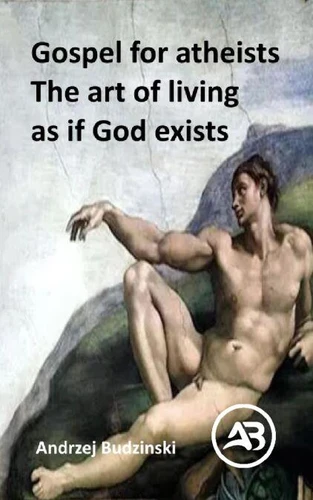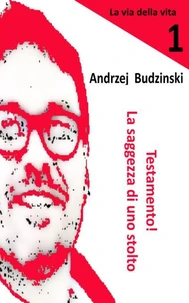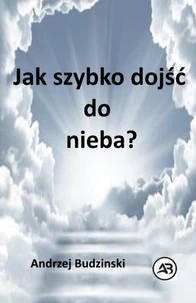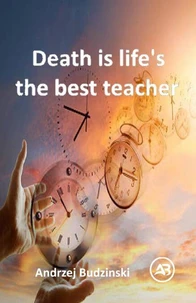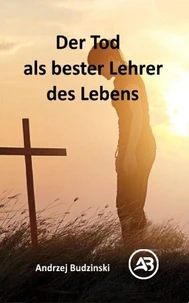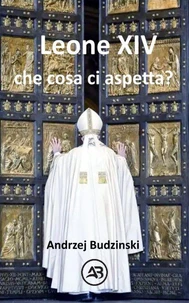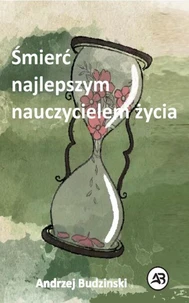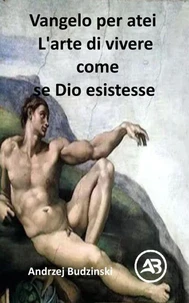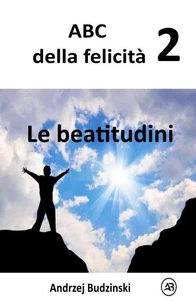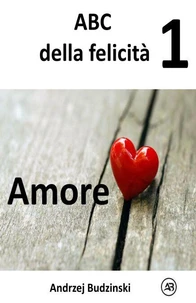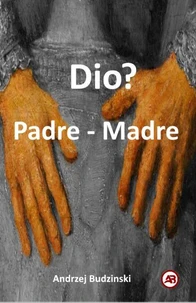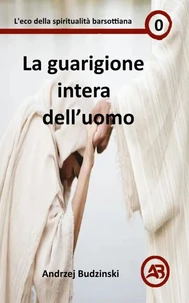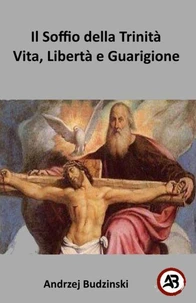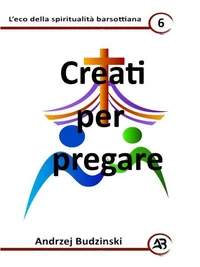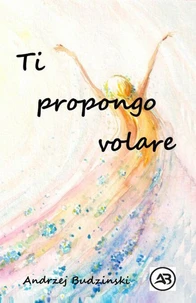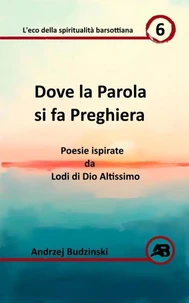Nouveauté
Gospel for atheists. The art of living as if God exists
Par :Formats :
Disponible dans votre compte client Decitre ou Furet du Nord dès validation de votre commande. Le format ePub protégé est :
- Compatible avec une lecture sur My Vivlio (smartphone, tablette, ordinateur)
- Compatible avec une lecture sur liseuses Vivlio
- Pour les liseuses autres que Vivlio, vous devez utiliser le logiciel Adobe Digital Edition. Non compatible avec la lecture sur les liseuses Kindle, Remarkable et Sony
- Non compatible avec un achat hors France métropolitaine
 , qui est-ce ?
, qui est-ce ?Notre partenaire de plateforme de lecture numérique où vous retrouverez l'ensemble de vos ebooks gratuitement
Pour en savoir plus sur nos ebooks, consultez notre aide en ligne ici
- FormatePub
- ISBN8230542162
- EAN9798230542162
- Date de parution05/08/2025
- Protection num.Adobe DRM
- Infos supplémentairesepub
- ÉditeurIndependently Published
Résumé
In a world saturated with self-help guides and dogmatic religious texts, this book offers a breath of fresh air-a surprising and profound reinterpretation of the Gospels designed not for the devout, but for the doubter. Written by a Polish-born scholar and teacher with a background in theology and psychology, it extends a radical invitation: to explore the wisdom of Jesus's teachings through an "atheistic" lens.
The author skillfully deconstructs the conventional notions of God, Jesus, and the church. The Cross, for instance, is reframed not as a symbol of divine power, but as "the greatest atheistic demonstration"-proof that true strength lies in love and vulnerability, not in the ability to dominate. Similarly, the Resurrection is presented not as a magical event to be blindly accepted, but as "the irrationality of hope, " a metaphor for believing in the possibility of new life even in moments of utter despair.
What makes this book truly unique is its series of "atheistic exercises." These are not prayers or rituals, but practical, thought-provoking challenges that ask the reader to engage with the core concepts on a deeply personal level. The author invites you to "bet on yourself, " to share a failure with a friend, or to spend an hour in solitude to listen to the silence. These exercises are the book's heart, transforming what could be a dry theological treatise into an interactive journey of self-discovery.
The writing is warm, accessible, and refreshingly free of judgment. The author's tone is that of a trusted friend, guiding you through complex ideas with playful metaphors, from the "Theology of the Black Hole" (God as a mystery, not a quiz answer) to the "Gospel of Memes" (parables as brilliant, concise wisdom). This approach makes the book appealing to a wide audience, from those who have felt alienated by organized religion to lifelong believers seeking a deeper, less rigid understanding of their faith.
In the end, this book doesn't aim to convert you. Instead, it challenges you to be a "seeker" and to recognize the inherent dignity and worth that lies within you. It's a powerful and compassionate work that suggests the most meaningful journey might not be about finding a final answer, but about the courage to live with the questions.
The author skillfully deconstructs the conventional notions of God, Jesus, and the church. The Cross, for instance, is reframed not as a symbol of divine power, but as "the greatest atheistic demonstration"-proof that true strength lies in love and vulnerability, not in the ability to dominate. Similarly, the Resurrection is presented not as a magical event to be blindly accepted, but as "the irrationality of hope, " a metaphor for believing in the possibility of new life even in moments of utter despair.
What makes this book truly unique is its series of "atheistic exercises." These are not prayers or rituals, but practical, thought-provoking challenges that ask the reader to engage with the core concepts on a deeply personal level. The author invites you to "bet on yourself, " to share a failure with a friend, or to spend an hour in solitude to listen to the silence. These exercises are the book's heart, transforming what could be a dry theological treatise into an interactive journey of self-discovery.
The writing is warm, accessible, and refreshingly free of judgment. The author's tone is that of a trusted friend, guiding you through complex ideas with playful metaphors, from the "Theology of the Black Hole" (God as a mystery, not a quiz answer) to the "Gospel of Memes" (parables as brilliant, concise wisdom). This approach makes the book appealing to a wide audience, from those who have felt alienated by organized religion to lifelong believers seeking a deeper, less rigid understanding of their faith.
In the end, this book doesn't aim to convert you. Instead, it challenges you to be a "seeker" and to recognize the inherent dignity and worth that lies within you. It's a powerful and compassionate work that suggests the most meaningful journey might not be about finding a final answer, but about the courage to live with the questions.
In a world saturated with self-help guides and dogmatic religious texts, this book offers a breath of fresh air-a surprising and profound reinterpretation of the Gospels designed not for the devout, but for the doubter. Written by a Polish-born scholar and teacher with a background in theology and psychology, it extends a radical invitation: to explore the wisdom of Jesus's teachings through an "atheistic" lens.
The author skillfully deconstructs the conventional notions of God, Jesus, and the church. The Cross, for instance, is reframed not as a symbol of divine power, but as "the greatest atheistic demonstration"-proof that true strength lies in love and vulnerability, not in the ability to dominate. Similarly, the Resurrection is presented not as a magical event to be blindly accepted, but as "the irrationality of hope, " a metaphor for believing in the possibility of new life even in moments of utter despair.
What makes this book truly unique is its series of "atheistic exercises." These are not prayers or rituals, but practical, thought-provoking challenges that ask the reader to engage with the core concepts on a deeply personal level. The author invites you to "bet on yourself, " to share a failure with a friend, or to spend an hour in solitude to listen to the silence. These exercises are the book's heart, transforming what could be a dry theological treatise into an interactive journey of self-discovery.
The writing is warm, accessible, and refreshingly free of judgment. The author's tone is that of a trusted friend, guiding you through complex ideas with playful metaphors, from the "Theology of the Black Hole" (God as a mystery, not a quiz answer) to the "Gospel of Memes" (parables as brilliant, concise wisdom). This approach makes the book appealing to a wide audience, from those who have felt alienated by organized religion to lifelong believers seeking a deeper, less rigid understanding of their faith.
In the end, this book doesn't aim to convert you. Instead, it challenges you to be a "seeker" and to recognize the inherent dignity and worth that lies within you. It's a powerful and compassionate work that suggests the most meaningful journey might not be about finding a final answer, but about the courage to live with the questions.
The author skillfully deconstructs the conventional notions of God, Jesus, and the church. The Cross, for instance, is reframed not as a symbol of divine power, but as "the greatest atheistic demonstration"-proof that true strength lies in love and vulnerability, not in the ability to dominate. Similarly, the Resurrection is presented not as a magical event to be blindly accepted, but as "the irrationality of hope, " a metaphor for believing in the possibility of new life even in moments of utter despair.
What makes this book truly unique is its series of "atheistic exercises." These are not prayers or rituals, but practical, thought-provoking challenges that ask the reader to engage with the core concepts on a deeply personal level. The author invites you to "bet on yourself, " to share a failure with a friend, or to spend an hour in solitude to listen to the silence. These exercises are the book's heart, transforming what could be a dry theological treatise into an interactive journey of self-discovery.
The writing is warm, accessible, and refreshingly free of judgment. The author's tone is that of a trusted friend, guiding you through complex ideas with playful metaphors, from the "Theology of the Black Hole" (God as a mystery, not a quiz answer) to the "Gospel of Memes" (parables as brilliant, concise wisdom). This approach makes the book appealing to a wide audience, from those who have felt alienated by organized religion to lifelong believers seeking a deeper, less rigid understanding of their faith.
In the end, this book doesn't aim to convert you. Instead, it challenges you to be a "seeker" and to recognize the inherent dignity and worth that lies within you. It's a powerful and compassionate work that suggests the most meaningful journey might not be about finding a final answer, but about the courage to live with the questions.

